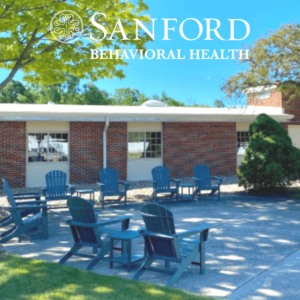5 Family Therapy Goals

If your loved one is struggling with substance abuse, you likely have a good idea of how impactful the disease of addiction can be on the broader family unit. Rarely if ever, does only one person suffer when addiction is present. Instead, entire family or friend groups typically feel the effects of an individual’s addiction in terms of commitments, mood changes, communication, and more.
In this challenging time, rest assured that effective treatments can help your loved one and your family repair relationships and improve mental health. At Sanford Behavioral Health, we offer services to family members of patients at no additional charge because we know that addiction is a family disease. Learn more and begin setting your personal family therapy goals by calling 616.202.3326 or reaching out to us online. The family program at Sanford Behavioral Health is a great place to get informed about addiction and recovery, build community, and develop a solid support system for your loved one’s sobriety.
Why Is Family Therapy Important
Family therapy benefits those in substance use treatment in many ways. Firstly, it helps families and friends learn about addiction as its disease. Through greater comprehension of the physical aspects of substance use, family members’ empathy and compassion often increase. So does their ability to provide well-informed support during the recovery process. Counseling for family members likewise allows for repair and healing to occur from any damage that may have been done due to their loved one’s substance abuse.
Addiction rarely exists in a vacuum, and therapy thus often explores more than just the immediate triggers and impacts of substance use. It may dive into much broader family dynamics, roles, expectations, goals, and the like. This helps all members understand how to better advocate for themselves while treating others with compassion and respect.
5 Family Therapy Goals to Keep in Mind
In general, people in recovery experience lower rates of relapse if their families undergo counseling with them. They are also more likely to remain in treatment for their agreed-upon time. Getting through the recovery journey is difficult, even with the best intentions. However, a well-informed and emotionally well-resourced support system can be the game-changing factor for many in recovery.
The five primary goals of family therapy are:
- Gaining skills for effective communication, such as active listening and increased awareness of tone and body language
- Reducing conflict by addressing thorny problems in a safe, mediated space
- Setting healthy boundaries, so all family members feel safe and respected
- Increasing empathy and compassion by exploring core values and backgrounds
- Problem-solving to help family members advocate for their needs by making requests and providing support and respect by meeting one another’s requests

At Sanford Behavioral Health, our family program starts with education and establishing your family’s family therapy goals. Loved ones and family members of those receiving treatment first learn how addiction functions as a family disease and addiction as a physical and mental process. They then engage with content on early recovery dynamics and gain skills for improved family communication. Support groups become available following this initial educational offering, and we can make referrals for additional services. Call 616.202.3326 or contact us using our secure online form to start the conversation.


